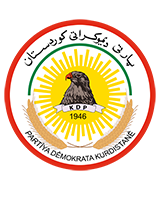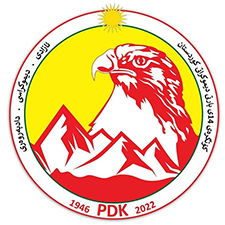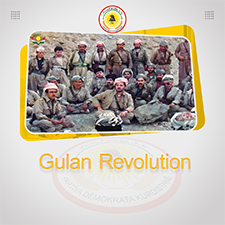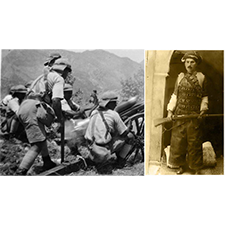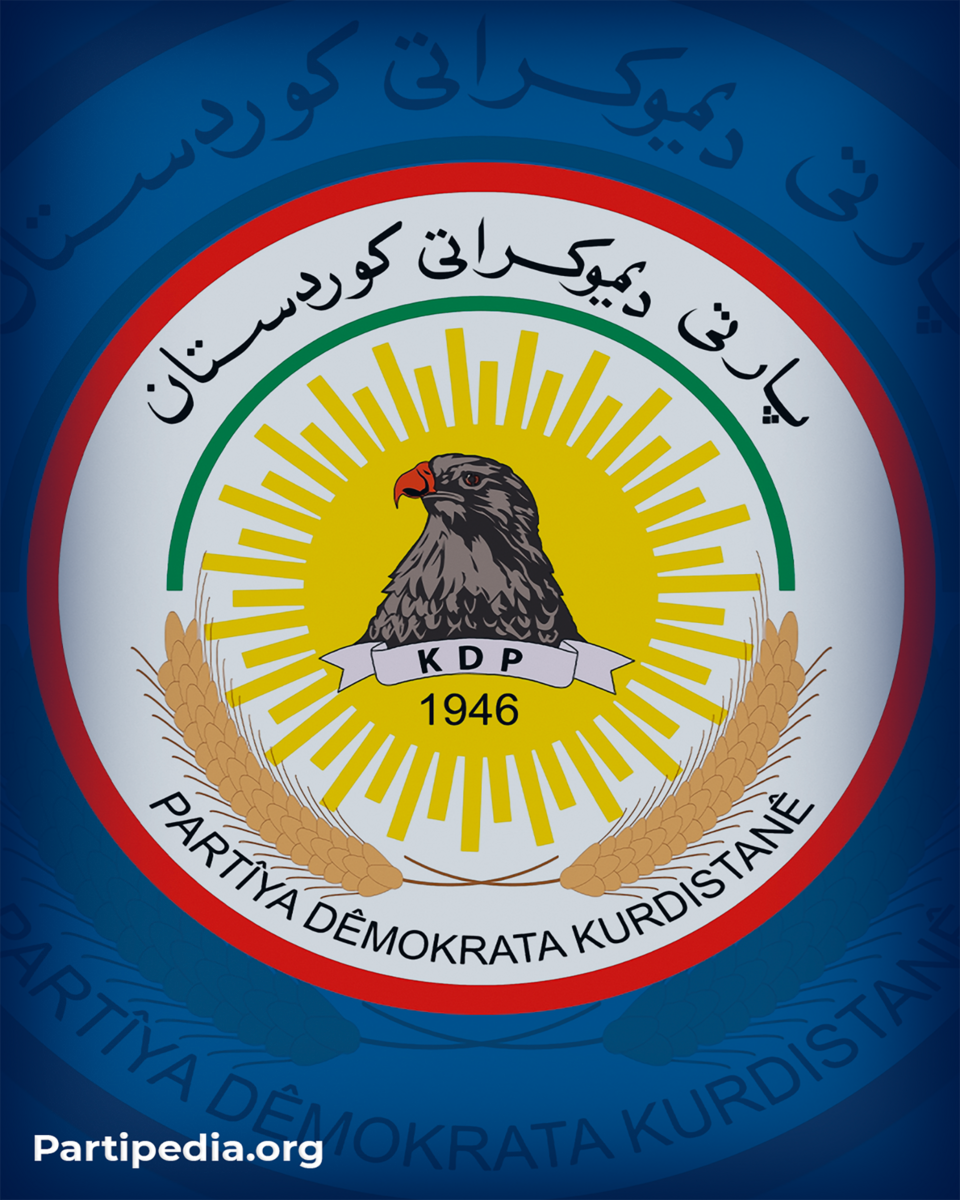Conditions and preparations
Kuwait was occupied by the Iraqi army on August 2, 1990, this occupation brought the coalition army into action, and on the 17th of December 1991, the Iraqi army was forced out of Kuwait by the coalition army and badly defeated. This defeat of the Iraqi army brought forth a suitable ground for the "opposition" forces of Iraq, to expand their activities. During that time, the leadership of the Kurdish front with other Iraqi parties has gotten into political and military activities inside Iraq.
In this situation the leadership of the Kurdistan Democratic Party, has held several large meetings, including the meeting of the early February 1991,which was held by being attended by the old and new members of the Central Committee, which consisted of about fifty members. In the meeting, the duties were distributed under the command of President Masoud Barzani, and the forces were divided into three groups: Erbil, Duhok and Mosul, and Sulaymaniyah and Kirkuk. After all the preparations in the March 5th 1991 uprising of Southern Kurdistan began and by 21 March the entire Kurdistan region was liberated from the regime.
Following the uprising in Southern Kurdistan in 1991 against the Iraqi regime and the mass flight of the people of South Kurdistan and the establishment of the Kurdistan National Council and the Kurdistan Regional Government, in the meeting of the Central Committee in March, it was decided to hold the 11th Congress of the Party، for this purpose, a preparatory committee consisted of: Muhammad Mala Qadir, Franso Hariri, Ramzi Shahban, Khurshid Shera, Najmadin Yusufi، Sheikh-Allah Ibrahim, Barzan Mala Khalid, Kamal Hassan, Najat Hassan,Habib Kalash and Ijra Saeed, until June 1993 most of the preparations of the Congress came to an end and the members were elected to the Congress and three parties decided to join the Kurdistan Democratic Party which were: the Kurdistan United Party (HSK – Pasok – People’s party), the Democratic Union of Kurdistan and the Muslim Fayli Movement. With the agreement of three Kurdish parties with the Kurdistan Democratic Party، the title "United" was added qith a little modification to the Name of the Party for the second time and changed to the Kurdistan Democratic Party - United.
Holding the Congress
On August 16-26، 1993، with the presence of 2,167 delegates, the Eleventh Congress was held in The Yellow Hall in Erbil, the capital of the Kurdistan Region. For the first time, a significant number of women participated in the Congress, with 124 delegates. The news of this Congress was published daily in the media.
The congress was held with the slogan of "peace, freedom and democracy". The political report was read by President Masoud Barzani. There have also been extensive changes in the program and procedures to adapt to the new situation. The congress also made a number of decisions, the most important of which was the restoration of the holy corpse of The legendary Barzani and Idris Barzani to be buried in Barzan, and it was decided to lay the groundwork for the return of the largest number of displaced people in Iran.
Muhammad Muhammad Ali, Adel AbdulMahdi Supreme Council of the Islamic Revolution in Iraq, Munziz Luis Secretary of the Iraqi Socialist Party.
The structure of the Kurdistan Democratic Party, based on the internal procedure of the 11th Congress, was: Cell (Shana), Main Cell, Organization Committee, Regional (Nawcha) Committee, Branch (Liq) Committee, Central Committee, Political bureau, Vice President and President. Also, the central board of inspection and monitoring was chosen directly by The Congress. This is the last time that the central board of inspection and monitoring to be chosen directly by the representatives of the Congress and will be given the characteristics of the leadership members because they have received trust from the Congress.
The Party institutions in 1993, consisted of the cental bureau of organizing, the central bureau of culture and media, the central bureau of military, the centeral bureau of management, the centeral bureau of finance, the centeral bureau of the national relation, the centeral bureau of foreign relations and the centeral bureau of studies and research. Members of the central committee of the eleventh congress:
1- Nechirvan Barzani
2- Sami Abdulrahman
3- Jawahar Namiq Salem
4- Hoshyar Zebari
5- Fazil Mirani
6- Yonis Rozhbayani
7 - Franso Hariri
8- Rozh Nuri Shaweis
9- Qadir Qadir
10- Teacher Saad Abdullah
11. Ezadin Berwarari
12- Muhammad Haji Mahmud
13- Karim Shingali
14- Jarjis Hassan
15- Kamal Kirkuki
16- Ali Shingali
17- Qadir Jabari
18- Liutenant Shwan
19- Sayyed Kaka
20- Omer Botani
21- Azad Barwari
22- Jalil Fayli
23- Shawkat Sheikh Yazdin Muhammad
24- Omer Osman Omer
25- Salah-al-din Ibrahim Qadir, Salah Dalo
26- Brusk Nuri Shawais
27- Ramzi Shahban
28- Liutenant Kareem
29- Darwesh Agha
30- Zaim Ali
31- Abdul Aziz Tayeb
32- Nizam-al-Din Gli
33- Aref Taifur
34- Masud Salayi
35- Muhammad Mala Qadir
36- Abdullah Agrin
37- Shireen Amedi
Standby members of the Central Committee:
-
Mahmud Muhammad Mahmud
-
Zeravan Nerwayi
-
Teacher Amin Qadir
-
Dr. Nash Ghafur
-
Akbar Haidar
-
Azad Qaradaghi
-
Barzan Mala Khalid
-
Kamal Hassan Chawmar
9- Nuri Hama Ali
Within the congress, members of the Central board of Inspection and Monitoring were elected by the direct vote of representatives, who were: Falakuddin Kakayei, Habib Muhammad Karim, Rashid Sindi, Ismail Mala Aziz, Ali Jaff, Doctor Muhammad Salih Jumaa, Muhammad Maruf, Muhammad Qazi and Ali Qasim Shingali.
By the members of the Congress, with the average vote, for the third time, President Masoud Barzani was elected president of the Kurdistan Democratic Party - United and Ali Abdullah as vice president. Later in the meeting of the Central Committee, on the 29-31 August 1993, new board of political bureau were elected, including Nechirvan Barzani, Jawahar Namiq Salim, Sami Abdulrahman, Hoshyar Zebari, Fazil Mirani, Dr. Roj Nuri Shaweis, Dr. Jarjis Hassan, Azad Barwari, Zaim Ali, Hama Haji Mahmud and Liutenant Sayid Karim.
In this congress, for the second time in the history of the Party, the immortal Barzani medal was awarded by President Masoud Barzani to nine of the leaders, commanders and friends of Barzani.
Sources:
• مێژووی پارتی دیموكراتی كوردستان، كۆنگره و كۆنفرانس (پرۆگرام و پهیڕهوی ناوخۆ)، دهستهی ئینسكلۆپیدیای پارتی دیموكراتی كوردستان، بهرگی دووەم، (ههولێر- چاپخانهی رۆكسانا- ٢٠٢١).
• محهمهد مهلا قادر، خهباتنامه، كورته مێژووی پارتی و بارزانی نهمر، چاپی سێیهم، (ههولێر- چاپخانهی ئاراس- ٢٠١٢).
• علي سنجاري، ها قد عدنا الی الحزب الأم، جریدة الشعلة، لسان حال للاتحاد الدیمقراطي الكردستاني ـ العراق، العدد ٢٩، أوائل تموز ١٩٩٣م.
• حبیب محمد كریم، تأریخ الحزب الدیمقراطي الكوردستاني ـ العراق (في محطات رئیسیة) ١٩٤٦ ـ ١٩٩٣، (دهوك ـ مطبعة خهبات ـ ١٩٩٨م).
• الأتحاد الدیمقراطي الكردستاني یعقد كونفرانسا توحیدیا هاما ویقرر حل نفسه والعودة الی الحزب الدیمقراطي الكردستاني، جریدة الشعلة، لسان حال للاتحاد الدیمقراطي الكردستاني ـ العراق، العدد ٢٩، أوائل تموز ١٩٩٣م.
• بیان الوحدة بین الحزب الدیمقراطي الكردستاني وحزب الوحدة الكردستاني، جریدة خهبات، لسان حال الحزب الدیمقراطي الكردستاني، العدد ٦٨٥، الأربعاء، ٢٨ تموز ١٩٩٣م.
• شهعبان عهلی شهعبان، ههندێك زانیاری سیاسی و مێژوویی، چاپی سێیهم، (ههولێر ـ چاپخانهی ڕۆژههڵات ـ ٢٠١٣ز).
• صلاح بدرالدین، الحركة الوطنیة الكردیة السوریة، الجزء الثاني، (اربیل ـ رابطة كاوا للثقافة الكردیة ـ مطبعة روژههلات ـ ٢٠١٨م).
• الحزب الدیمقراطي الكردستاني یعقد مؤتمره الحادي عشر، جریدة المؤتمر، المكتب الاعلامي للمؤتمر الوطني العراقي الموحد، العدد ١٥، ١٩ آب ١٩٩٣م.
• پارتی دیموكراتی كوردستان ـ یهكگرتوو، پڕۆگرام و پهیڕهوی ناوخۆی کۆنگرەی یازدهیهم، (بێ شوێن ـ بێ ساڵ).
• كۆنگره، دهرئهنجامهكانی ههڵبژاردنی كۆمیتهی ناوهندیی پارتیمان ڕادهگهینێت، ڕۆژنامهی برایهتی، ئۆرگانی پارتی • دیموكراتی كوردستان ـ یهكگرتوو، ژماره ١٧٢٩، ههولێر، ههینی، ٢٧ی ئابی ١٩٩٣ز.
• پرۆگرام و پهیڕهوی ناوخۆی پارتی دیموكراتی كوردستان له کۆنگرەی یازدهههمینی پارتی كه له ١٦-٢٦/ئاب/١٩٩٣ دا بهسترا بڕیاری لهسهردراوه، (چاپخانهی خهبات – دهۆك).




